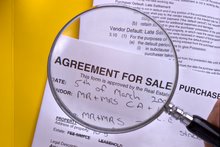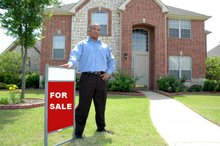If you are a property investor (or potential property investor), then you'll find this real estate article by Robert Palmer to be of interest.
Run the numbers before buying an investment property
Author: Robert Palmer
RENTAL INCOME
Rental income is not as straight-forward as it seems. Sometimes properties are under-rented and sometimes properties are over-rented, so be sure to find out the market rents when you consider a property. When we bought our first fourplex, we looked at comparable leases and realized our rents were too high, so instead of assuming we would continue to receive $3600 of rental income, we had to be realistic and assume it was more like $3200.
MORTGAGE INTEREST
A huge cost is mortgage interest. You should definitely sort out the details of your loan options and get an idea of current rates before running the numbers. It could make or break a deal. If you are getting a duplex or a house, the loans are generally similar to other home loan programs. Triplexes and fourplexes tend to have higher rates, and commercial is a whole other ballgame.
One thing to consider is to put more down because the more you put down, the less your loan will be, which means less monthly interest to pay. Another consideration is the type of loan. We usually recommend for people to get a fixed rate mortgage these days because the current ARM (adjustable rate mortgage) rates are not all that much lower than fixed rates.
Basically, just get educated about the loan options and run the numbers with them. Oh, and also, do not just take advice from one mortgage person. The best way to get educated is to talk to a variety of mortgage brokers and banks to find your best solution; not all loan places have the same programs.
TAXES
People frequently use the taxes from the year when they purchased the property, assuming the taxes will stay the same. Taxes change every year. Taxes can go up drastically after a purchase. For example, an owner occupied property usually has tax breaks, so unless you intend to owner occupy too, your taxes will go up.
Also, the county appraisal that your taxes are based on could go up after your purchase. For example, if you buy a property for 100,000 but the tax appraisal last year was for 50,000, don't count on it remaining at 50,000. In fact, I have seen cases where a year after a property was purchased the tax assessor increased the appraisal value to the purchase price. The safest approach is to look at the tax rate and the purchase price to determine your future taxes.
VACANCY COST
For some reason people tend to forget to take into account vacancy rate. Even when looking to invest in a desirable rental area, it's best to always take into account at least an 8-10% vacancy rate. Do some investigation, look at your market and find statistics on the average vacancy rate.
TENANT TURNOVER COST
We have personally found the biggest surprise to be the expense of tenant turnover. This includes advertising for a new tenant, cleaning, repainting, replacing carpet, etc. If you expect to have high tenant turnover, like next to a college campus, anticipate this to be a significant cost.
INSURANCE COST
Insurance on investment properties are typically higher than owner occupied, single family properties. So get an insurance quote on the property instead of basing your expected insurance off of the insurance bill for your house. You also should purchase liability insurance which can be expensive.
MAINTENANCE COSTS
This is by far the most difficult number to estimate. It depends on the property, whether you fix some of the problems yourself or hire outside help, and random luck. So we can't give you a hard and fast number but we can look into different factors to take into account.
Property Type - When you evaluate different properties remember to take into account the type of property. If it's brick you won't have to paint or worry about wood root. Decks need constant maintenance. A property with wood or concrete floors will be easier to clean and will not have to be replaced when a tenant moves out. Just think about the aspects of the property and their maintenance costs.
Property Size - A smaller property is easier to maintain than a larger property. For instance, say there are two properties for sale for 200,000 and each have a combined rent of 2000. A property with 2 units and a total of 1000 square feet will be cheaper to maintain than a property with 6 units and 3000 square feet. The larger property will be more expensive to maintain when you are replacing the larger roof, painting the interior walls, etc. Also, more units mean more money spent on advertising, make-readies, and more appliances to repair.
Property Location - Consider your proximity to the property. If you buy a property 30 miles away, over the course of a year you can spend a decent amount of gas money driving back and forth.
Your personal management style - How often will you do maintenance work yourself vs hiring help? For instance, when a unit needs painting will you paint the rooms or hire a painter? Hiring professionals is definitely more expensive, but you have to be realistic about how much you will personally do, especially if you are looking at a lot of units.
UTILITY COSTS
Be sure to check what the tenants pay for and what the owner pays for. This includes all the utilities and lawn maintenance. In addition, there may be owner expenses like parking lot lights and trash bin service.
PROPERTY MANAGEMENT COSTS
If you are going to hire a property management company, definitely get their rates. We personally choose properties that we can manage ourselves.
SUMMING THE NUMBERS
We wrote a investment property calculator which is located here Investment real estate calculator . Once you add all the numbers up, you often find the property has 0 cash flow or even negative cash flow. This doesn't necessarily mean you should not purchase the property.
There are positive tax benefits to rental properties and depending on your situation, a property with technically 0 cash flow could still put more money in your pocket due to tax benefits. Also, if you think the property is going to appreciate in the future, a zero or negative cash flow property could still be appealing.
The point here is that if you are buying a property with zero or negative cash flow, it's best to know beforehand instead of after the property has been purchased.
Located in Austin Texas The Austin Real Estate and Homes Group offers potential investors with advice and expertise about the Austin Real Estate market. If you are looking to invest in Austin Texas there are alot of options and potential pitfalls so its good to have someone on your side to help you locate an investment that will fit your goals for a real estate investment. Their website offers a free Home Search of the Austin MLS along with description of the different downtown Austin Condos

















